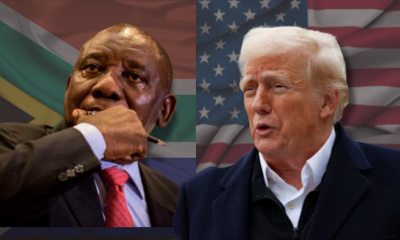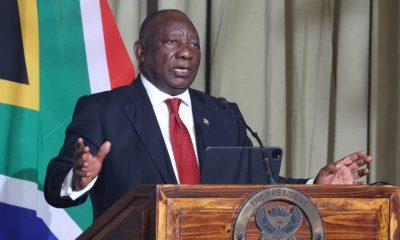Business
South Africa Faces Trade Crossroads as US Tariffs Loom and AGOA Nears Expiry

With the looming expiry of the Africa Growth and Opportunity Act (AGOA) and increasing diplomatic strain with the United States, South Africa finds itself at a critical economic juncture. The threat of US tariffs and the potential loss of duty-free access to American markets has prompted calls for urgent trade diversification and a rethinking of international trade strategy.
AGOA, established to provide qualifying African countries with preferential access to the US market, has long supported South Africa’s key export sectors such as agriculture, mining, and automotive manufacturing. But with the current programme set to expire in September and diplomatic tensions rising—particularly under Donald Trump’s trade policies—South Africa’s place in the arrangement is uncertain.
Time to Broaden Horizons
Sipho Mhaga, a Customs and Excise Specialist at SNG Grant Thornton, says the country must now look beyond its traditional trade partners.
“We need to examine our own trade agreements more closely and take advantage of regional frameworks like AfCFTA and SACU,” Mhaga said.
While these African trade agreements offer promise, they are hampered by logistical inefficiencies, complex border controls, and non-tariff barriers. To overcome these issues, Mhaga emphasizes the need for investment in infrastructure, modernised customs systems, and regulatory harmonisation.
“Improving logistics and reducing red tape would empower SMEs to participate more actively in intra-African trade, enhancing inclusivity and resilience,” he added.
BRICS: A Viable Alternative?
As the US relationship frays, South Africa is being encouraged to strengthen trade ties with BRICS countries—Brazil, Russia, India, China, and South Africa itself.
While China already accounts for a significant portion of South Africa’s exports, other BRICS partners remain under-explored. Mhaga highlights potential in agriculture, minerals, and manufactured goods, though warns that issues like Brazil’s strict import rules must be tackled to realise these opportunities fully.
Industry Leaders Warn of Major Export Losses
Busi Mavuso, CEO of Business Leadership South Africa (BLSA), has expressed concern over the long-term implications of losing AGOA access.
“We must expect that AGOA will come to an end in September. Its expiry will hit our automotive sector hard and undermine agricultural exports to the US,” Mavuso said.
She added that strengthening partnerships with India and other BRICS members should now be a strategic priority, especially as global trade dynamics shift.
A Green Future with European Potential
Europe remains a top destination for South African vehicles, but the EU’s plan to phase out internal combustion engine vehicles by 2035 poses a new challenge. To maintain access to this market, South Africa must pivot quickly toward electric vehicle (EV) production.
Encouragingly, the government recently introduced a 150% tax deduction for qualifying investments in EV-related production. This could help South African manufacturers stay competitive in the evolving green economy.
As the era of AGOA preferences draws to a close and the threat of US tariffs looms large, South Africa must move decisively to diversify its trade partnerships. Leveraging regional agreements like AfCFTA, strengthening ties with BRICS, and investing in green manufacturing will be essential steps to safeguard the country’s economic future.
By modernising infrastructure, streamlining trade procedures, and embracing future-ready industries, South Africa can reduce its dependency on volatile Western markets—and secure a stronger position in the global trade landscape.
{Source: IOL}
Follow Joburg ETC on Facebook, Twitter , TikTok and Instagram
For more News in Johannesburg, visit joburgetc.com



























